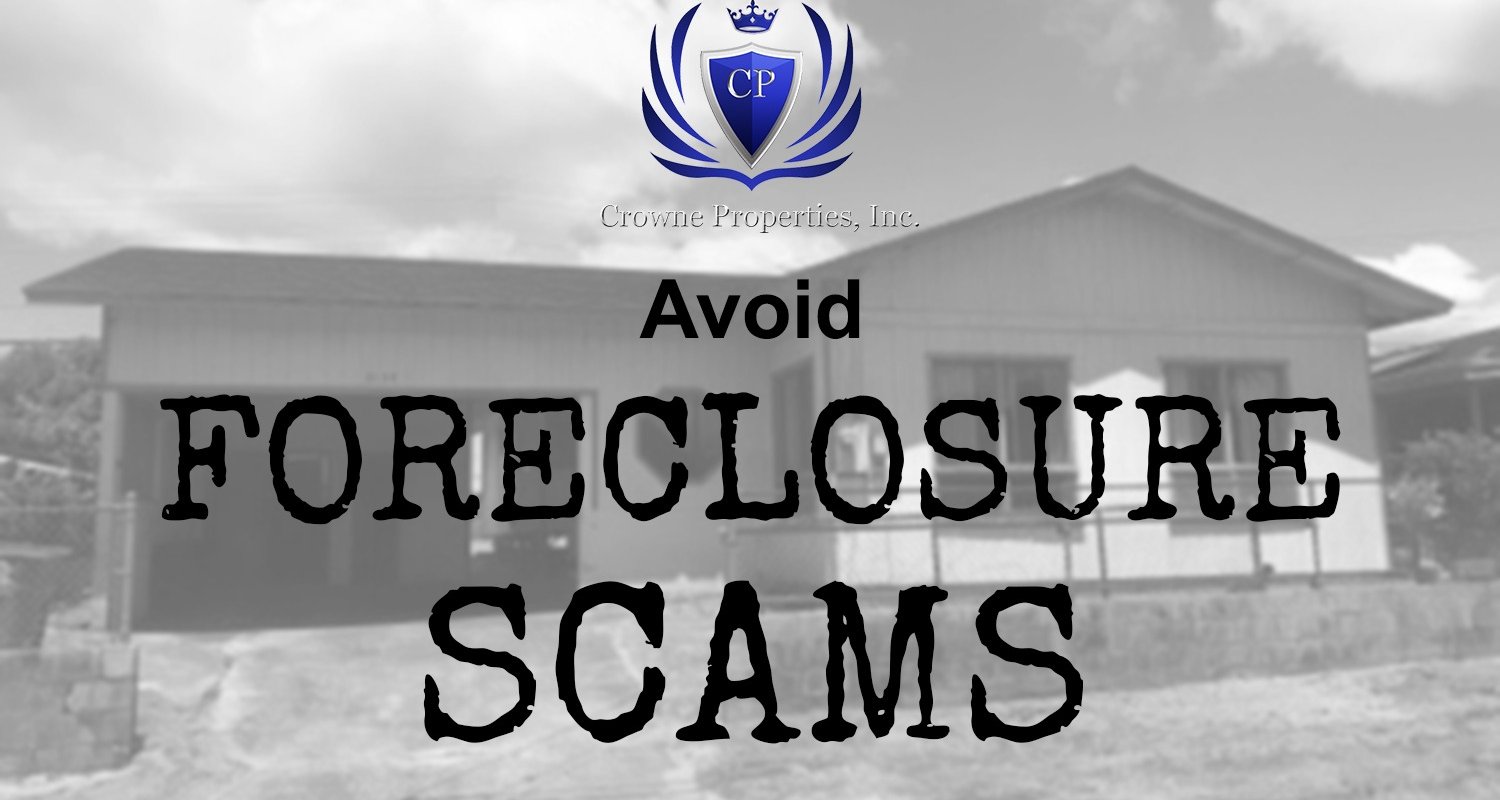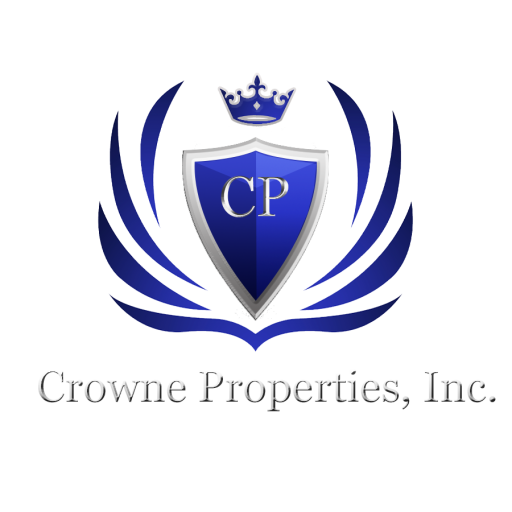Foreclosure Scams in Hawaii
Real estate scams have been on the rise for the past few years.
Common setups include escrow wire fraud, pressure from predatory “lenders” to refinance a mortgage, and even scammers who pose as real estate agents to show rental properties to unsuspecting renters.
And while the common perception is that senior citizens are the ones who usually fall for these scams – Recent research indicates that millennials are even more likely than seniors to become victims of financial and real estate fraud.
Perhaps the most dangerous scams of all, however, are foreclosure scams.
But how do you know if the person you’re talking to really is a successful real estate investor, or if they’re a complete con man? And what are the red flags you need to be aware of when you work with people who want to make you an offer on your home?
In this post, we’ll tell you everything you need to know about how to avoid foreclosure scams in Hawaii. Then, we’ll fill you in on the other options you can look into if you need to sell your home in Hawaii quickly to avoid foreclosure.
Assessing Your Vulnerability
Here’s the thing: if you’re currently facing the risk of foreclosure, you’re already in a vulnerable place. The people running foreclosure scams in Hawaii know this, and want to capitalize on your fears in the most malicious ways possible.
Perhaps you’re facing a potential foreclosure because you suddenly lost your job, experienced a death in the family, or even had some sort of medical emergency.
Maybe your home’s value has plummeted in the past few years, and now your home is worth much less than what you currently owe to your mortgage lender.
Perhaps you’ve inherited a property that you can’t really afford, were served with divorce papers or experienced any other kind of financial issue that made you unable to make mortgage payments.
No matter the reason, knowing that a lender could repossess your home is terrifying, and this anxiety often clouds your judgment and makes you agree to anything that will get you out of this mess as soon as possible. Because you’re so desperate, you may not take the time to do the research and other kinds of due diligence on these predatory scammers offering to “help.”
So, how do these scammers find you?
Whenever a lender files a foreclosure notice on your home, that foreclosure is listed in the local newspaper or in public court filings (which is often incredibly humiliating for you as the homeowner.) These listings may alert interested buyers — but they also let scammers know that you’re in trouble.
Soon, they start contacting you en masse, promising to save you from financial ruin.
Let’s take a look at some of the common scams these disreputable “foreclosure companies” run below.
The Most Common Foreclosure Scams in Hawaii
It’s important to remember that there are companies out there that genuinely want to help you avoid foreclosure.
Know that you can also talk to your mortgage lender directly and try to come to an agreement that allows you to keep your home. You can also work with cash buyer companies (more on that later) that will buy your home before it’s fully foreclosed on.
However, you need to know when you’re being taken for a ride. Here are some of the most popular foreclosure scams to avoid.
Pressure to Stop Paying Your Lender
A common tactic is for a scammer to tell you to stop making all the payments to your mortgage lender, and instead start making your mortgage payments out to them.
Then, the scammer promises that they’ll handle everything with your lender and the banks. They’ll claim they have tons of connections, and that you shouldn’t tell your lender or a legal professional what you’re doing, as it could damage the negotiation process.
This is not something you should ever do without a conversation with your lender and written permission from them first. Nine times out of ten, the scammer just takes off with your money, and you’re even worse off than you were in the first place.
Equity Skimming
If you’ve decided to put your home on the market, you may be approached by a scammer who says that they’ll buy your home at the asking price as-is, and who promises to pay off your mortgage for you.
This buyer says that they’ll take over your mortgage and give you a lump sum of cash once your home has sold. Of course, this means that you’ll need to move out ASAP and sign over the property deed to this mysterious buyer.
Instead of making your mortgage payments, however, the buyer collects rent and your lender forecloses your home. Remember that just because you’ve signed your deed over to another person doesn’t mean that you no longer have to pay back your mortgage.
The Counseling Scam
Scammers know that most homeowners, even those in foreclosure, may be reluctant to sign away the deed to their homes or make mortgage payments directly to the scammer.
So, the scammers will go for the low-hanging fruit — charging you for their “expert” advice and paying them to negotiate with your lender on your behalf.
Remember that there are tons of free loan counseling services out there and that there is never any kind of fee for you to speak with your mortgage lender on your own.
Avoiding a Title Company
Some scammers will try to convince you that you don’t need to work with a title company when you’re selling your home in foreclosure.
The scammers will also likely provide you with tons of paperwork that you don’t have the time to read or that you don’t fully understand. They may even ask you to provide them with sensitive financial records, your social security number, and other personal details.
While you can sometimes sign paperwork in your home (known as a kitchen-table closing) without any issues, you absolutely need to have a 3rd party title company present.
Posing as a Government Agency
Some scammers will claim to be representatives of a government agency, like HUD, the MHA program, or the FHA.
You should always speak to your lender before agreeing to work with any of these fake agents. Remember that you don’t have to pay to get information and that anyone who says otherwise is likely a scammer.
How to Avoid Foreclosure Scams
So, how can you avoid falling victim to these mortgage scams and foreclosure frauds?
First of all, never sign any paperwork that you don’t understand or feel like you’re being pressured to sign. Never make payments to anyone other than your mortgage company, and never pay for “advice” about how to stop foreclosure proceedings. Do not stop making payments to your lender during this time.
Above all, never sign the deed of your home to someone else without a title company or an attorney present and a conversation with your mortgage lender.
If you think you’ve found a solution, you should always conduct a DCCA business search first. This will help you to ensure that they’re a legitimate business and avoid being taken advantage of.
One of the best things you can do is to work with a reputable cash buyer company. to avoid foreclosure. Often, you will receive a fair, no-obligation cash offer on your home in as little as 48 hours. These cash buyers will also handle your closing costs and will not charge you any fees to work with them.
Don’t Fall Victim to a Foreclosure Scam
We hope this post has helped you to avoid falling victim to some of the most common foreclosure scams in Hawaii.
If you’re currently facing a foreclosure on your home in Oahu, Hawaii, our team at Crowne Properties wants to help you by making a fair cash offer on your home.
We have a 5-star rating on Google, are members of the Hawaii Chamber of Commerce, and have an “A” rating from the Better Business Bureau. In short? When you work with us, you can rest easy knowing that you’re in the hands of a trusted, experienced, and credible cash buying company.
We will work with you on an individual level to determine the best possible course of action for you, whether it’s buying your home for cash as soon as possible, or listing your home for sale.
We invite you to read some of what our past customers have to say about working with us. When you’re ready, fill out this simple form on our website to request your fair cash offer from us.


